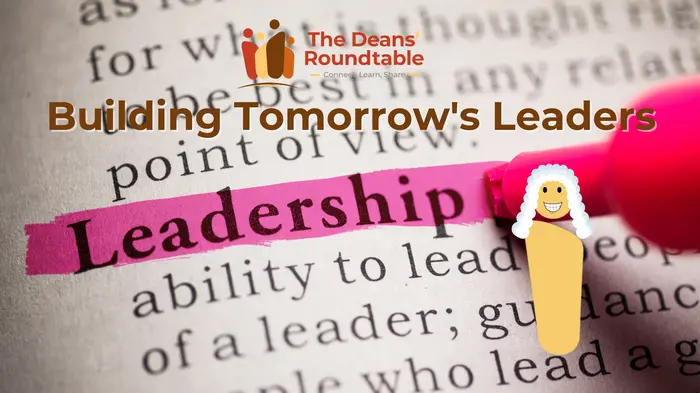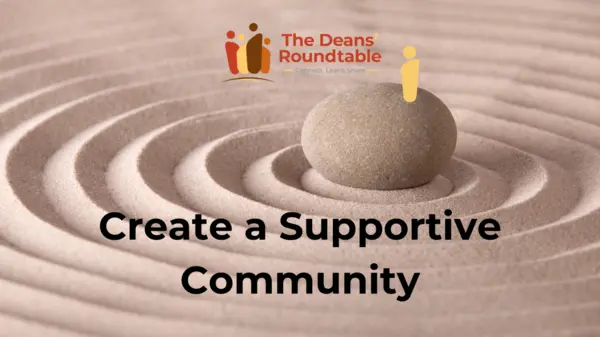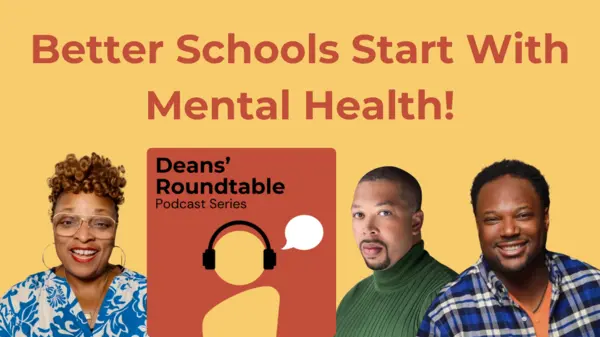Mentorship in Educational Leadership: Building Great Deans

Explore how mentorship transforms educational leadership through my conversation with veteran dean David Torcoletti. Learn what makes effective deans, how to balance support with accountability, and why mentorship matters at every career stage. Discover the importance of living a balanced life while leading others.
Spring Student Leadership Programs: 8 Innovative Approaches for K-12 Students

Spring leadership programs provide K-12 schools with an effective framework for developing student leaders. Through structured peer mentoring, these programs build essential skills while addressing academic and social-emotional needs.
Effective Listening Skills for Leaders: Andrew McMasters on Communication

In my recent Dean’s Roundtable conversation, Andrew McMasters shares transformative communication techniques from his book “Listening Without Agenda.” Learn practical exercises for becoming a more present listener and building stronger connections as a leader.
Spring Cleaning Your Sanity: Prepping for the End-of-Year Marathon

Deans’ Digest – March Edition Spring Cleaning Your Sanity: Prepping for the End-of-Year Marathon March is here, and that means two things: the school year is in its final stretch, and student life professionals everywhere are hanging on for dear life. Between prom, senior pranks, and graduation, the next few months are a marathon. But […]
Teaching Discussion Skills Transforms Modern Education

In an era where students would rather text than talk, discover how structured discussion training helps build essential communication skills. R.E.A.L. Discussions founder Liza Garonzik shares insights on fostering meaningful dialogue in schools and preparing students for authentic human connection in an AI-driven world.
Mid-Year Restorative Practices: Refresh Your School’s Approach Now

Transform your school’s restorative practices mid-year with a strategic reset approach. Learn how to address common challenges, reinvigorate staff engagement, and empower student leaders. This comprehensive guide provides practical strategies for assessing, planning, and implementing an effective mid-year restorative practices reset.
Mental Health in Leadership: Creating Safe Spaces for Authentic Conversations

In today’s fast-paced world, mental health challenges and personal struggles often remain hidden beneath professional facades. As leaders in education and beyond, understanding and addressing these invisible battles is crucial for creating supportive, productive environments. A recent Dean’s Roundtable podcast explored this vital intersection of personal challenges and professional responsibilities.
Wellness Strategies for Education Professionals to kick off 2025

As education professionals, we often prioritize everyone else’s needs before our own. Drawing from my experience as a former dean, I’ve learned that implementing effective wellness strategies isn’t just beneficial—it’s essential for sustainable success in education. Let’s explore practical approaches to maintaining well-being in our demanding field.
Preventing Educator Burnout: A School Leader’s Guide to Sustainable Success

Former school administrator Aubry Triptow learned about educator burnout the hard way – through hospitalization and a stress disorder diagnosis. Now, she’s sharing practical strategies for preventing burnout while maintaining passion for education. Discover her three-part framework for creating sustainable success in school leadership.
Supporting Deans in Schools Leadership Guide

Supporting Deans in Schools Leadership Guide In today’s evolving educational landscape, deans are essential yet often overlooked contributors to school success. For school leaders, understanding effective approaches to supporting deans in schools isn’t just good practice—it’s crucial for building thriving educational communities. The Critical Role of Supporting Deans in Schools School deans navigate unique challenges […]

